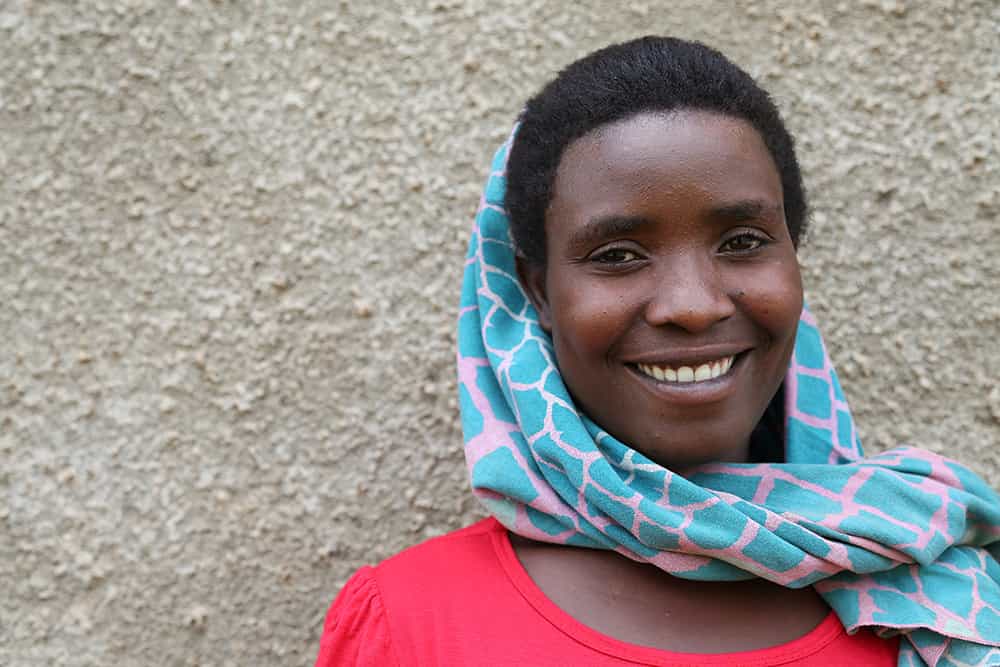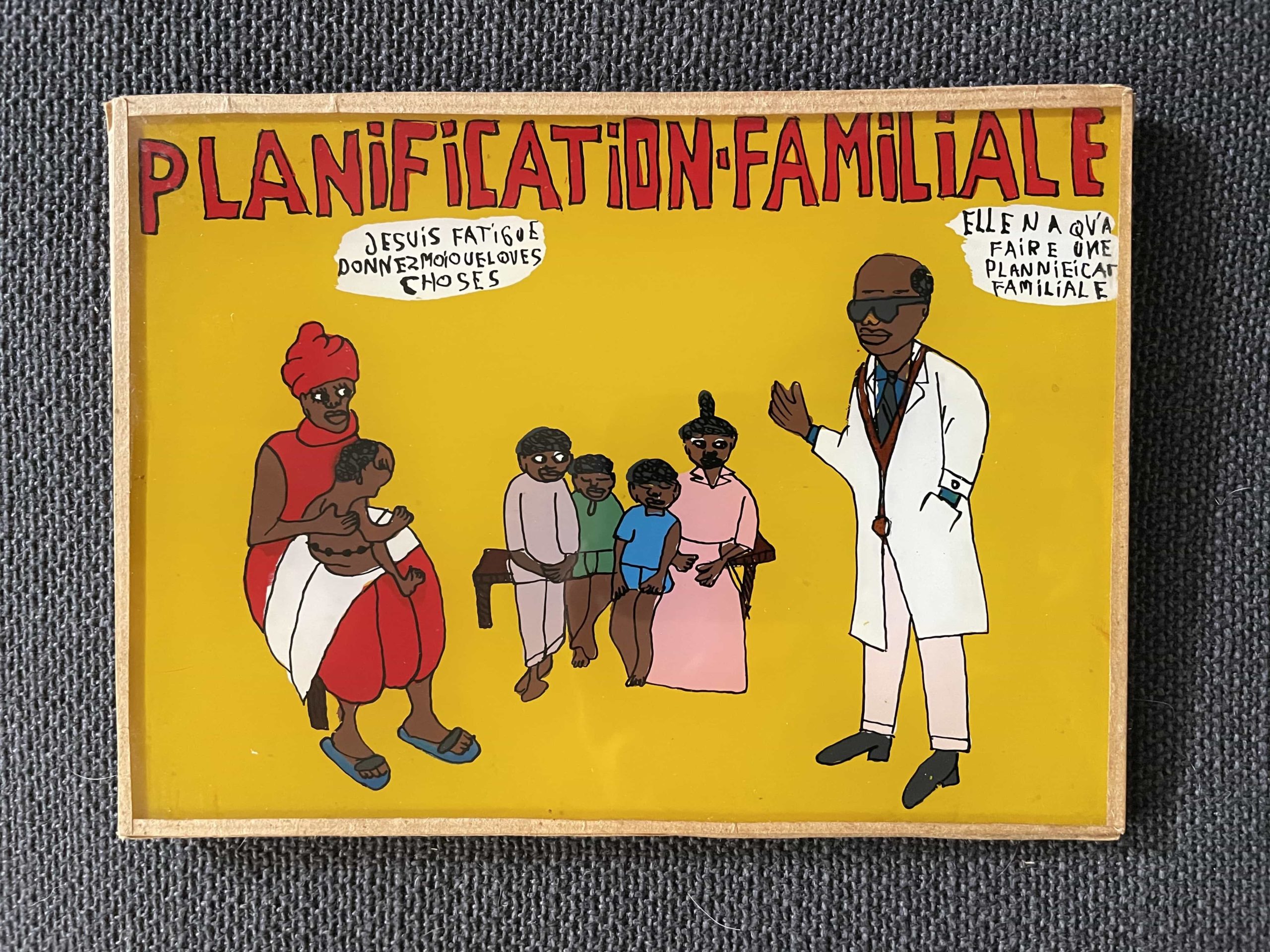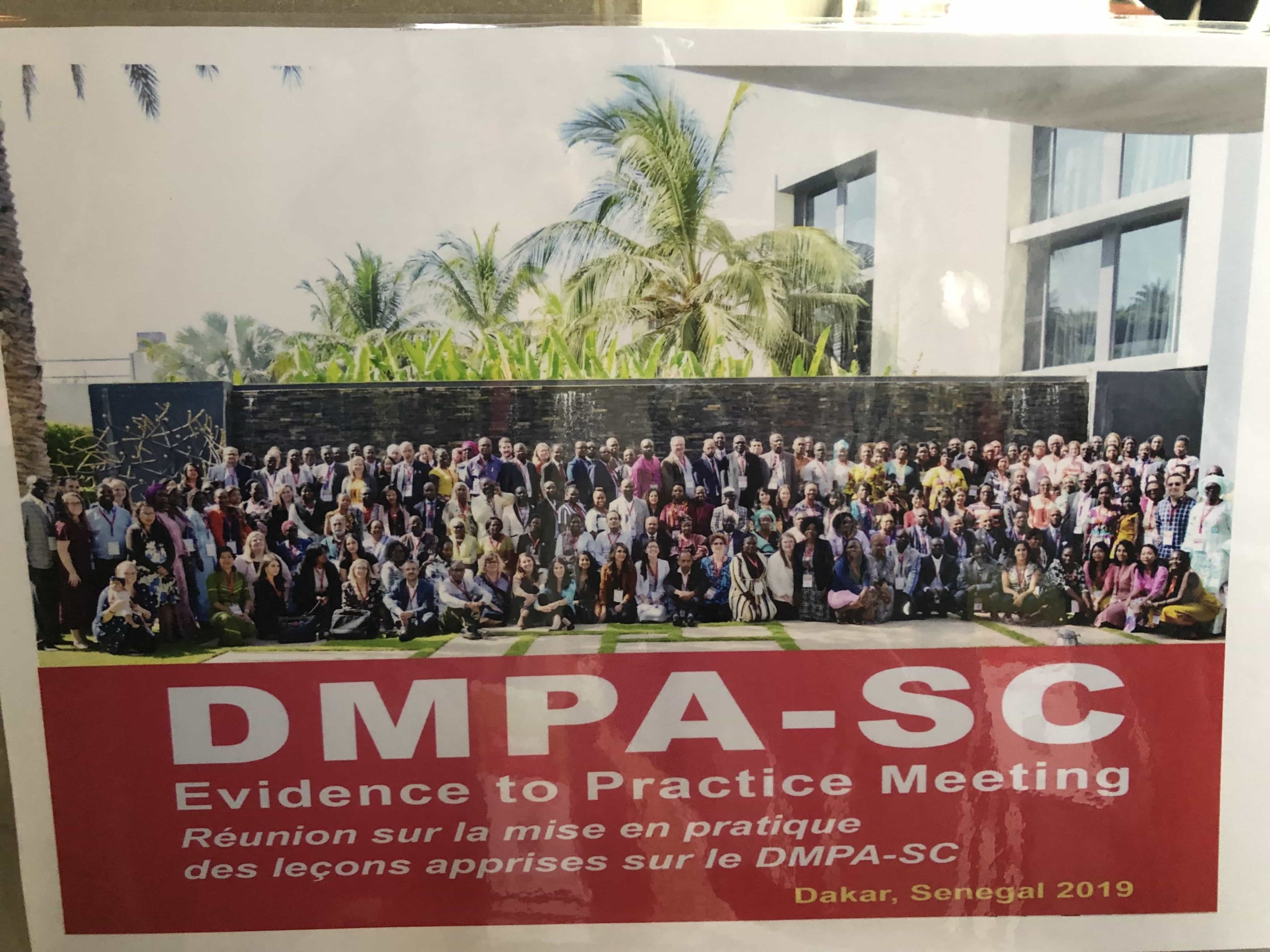Reflections on advances in DMPA-SC and self-injection

FHI 360’s Catherine Packer shares a personal perspective on the rapid progress of DMPA-SC over the past ten years, from early research to recent workshops. Since its introduction—and particularly since it became available for self-injection—DMPA-SC has become an important part of the global family planning and reproductive health landscape.
“Sayana is easy to use, and [there is] no need to spend time coming to the hospital to be injected. When it’s your date, you just help yourself at home.” – Participant in the randomized controlled trial of DMPA-SC self-injection in Malawi, 2017
![Catherine Packer (FHI 360) and Ibrahima Mall (Centre de Formation et de Rercherche en Santé [CEFOREP]) carry DMPA-SC and DMPA-IM to study sites in Senegal in 2012. Image credit: Daouda Mbengue Catherine Packer (FHI 360) and Ibrahima Mall (Centre de Formation et de Rercherche en Santé [CEFOREP]) carry DMPA-SC and DMPA-IM to study sites in Senegal in 2012. Image credit: Daouda Mbengue](https://knowledgesuccess.org/wp-content/uploads/2021/05/75CECBE3-140D-44E4-B00B-EA981A97C854-1024x1018.jpeg)
Evidence to Support Scale-up
During the past decade, FHI 360, PATH, and other groups have generated strong evidence showing that DMPA-SC is safe and acceptable to clients and providers. DMPA-SC was soon made available for self-injection: Clients could take the product home with them to use themselves. Since then, studies have also shown that DMPA-SC and self-injection can increase access to contraception and continued use among adolescent girls and women around the world. Thanks to the resulting endorsement by the World Health Organization (WHO) and advocacy efforts, countries have introduced and scaled up DMPA-SC and self-injection in the past several years. For example, Malawi was one of the first countries to introduce DMPA-SC and self-injection at the same time (it is more common to introduce provider-administered DMPA-SC first, and introduce self-injection later). This was based on evidence from a randomized controlled trial conducted by FHI 360 and the University of Malawi. This trial showed that those who self-injected DMPA-SC were more likely to continue using it compared to those who received their injection from a healthcare provider. In 2018, Malawi’s Ministry of Health (MOH) approved the introduction of DMPA-SC self-injection into the family planning method mix and began offering it in seven districts. Malawi was a pioneer in sub-Saharan Africa in offering DMPA-SC self-injection as part of routine family planning delivery. The MOH approved the national rollout of self-injection in 2020.

Workshops Expand Knowledge
In 2019, I was fortunate to attend the DMPA-SC Evidence to Practice meeting. This meeting was convened by the DMPA-SC Access Collaborative and took place over four days in Dakar, Senegal. It was amazing to see the progress achieved through the introduction and availability of this product and the hard work of people around the world. During that meeting, countries shared and learned from one another’s experiences introducing and scaling up DMPA-SC and self-injection. Based on these learnings, the meeting supported more countries to make action plans to introduce DMPA-SC and self-injection.

In March 2021, the DMPA-SC Access Collaborative organized the virtual Making Self-Injection Count workshop. The eight sessions focused on how to integrate self-injection data into routine health management information systems (HMIS). Sessions also focused on how to use public and private sector data to inform policy and practice. I helped to support the session, “Integrating Self-Care Methods into the National Health Information System: Experiences and Lessons Learned from Malawi.” This session was based on the Malawi Ministry of Health’s (MOH) integration of DMPA-SC and self-injection into their HMIS and the effective partnership that enabled the successful rollout of DMPA-SC. In addition to the Malawi MOH, this partnership included ten other organizations:
- FHI 360
- The Centre for Health, Agriculture, Development Research and Consulting (CHAD);
- Youth Net and Counseling (YONECO);
- Banja La Mtsogolo (BLM);
- Population Services International (PSI);
- Clinton Health Access Initiative (CHAI);
- Management Sciences for Health (MSH);
- United States Agency for International Development (USAID); and
- United Nations Population Fund (UNFPA).
The workshop also featured a great hands-on session about HMIS data visualization and another on the opportunities and challenges related to the use of private sector data.
A Look Ahead
We are now more than one year into the COVID-19 pandemic. Self-injection of DMPA-SC allows adolescent girls and women to avoid traveling to crowded health facilities every three months to be injected by a provider. Self-injection enables adolescent girls and women to prevent pregnancy in a private and convenient manner for up to one year. Throughout the pandemic and beyond, this method has the potential to help adolescent girls and women prevent pregnancy.
Today, more than 40 countries have introduced or scaled up DMPA-SC as a family planning method. Half of these countries have also introduced or are planning to introduce self-injection. When I think back to my trip to Senegal nine years ago to begin working on DMPA-SC research, I am awed by how far we have come. I am excited to see where we go from here.
* DMPA-SC: Subcutaneous depot medroxyprogesterone acetate. Sayana® Press is a registered trademark of Pfizer Inc. Uniject™ is a trademark of BD (Becton, Dickinson and Company).





